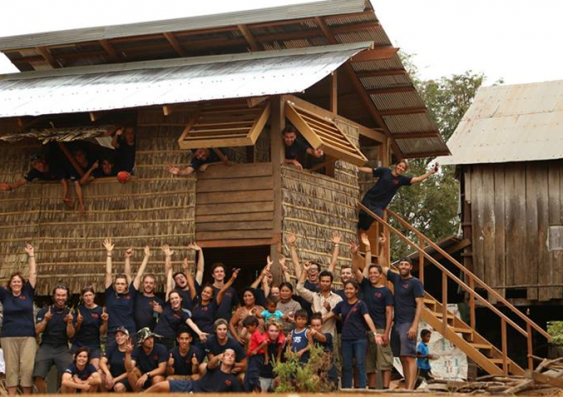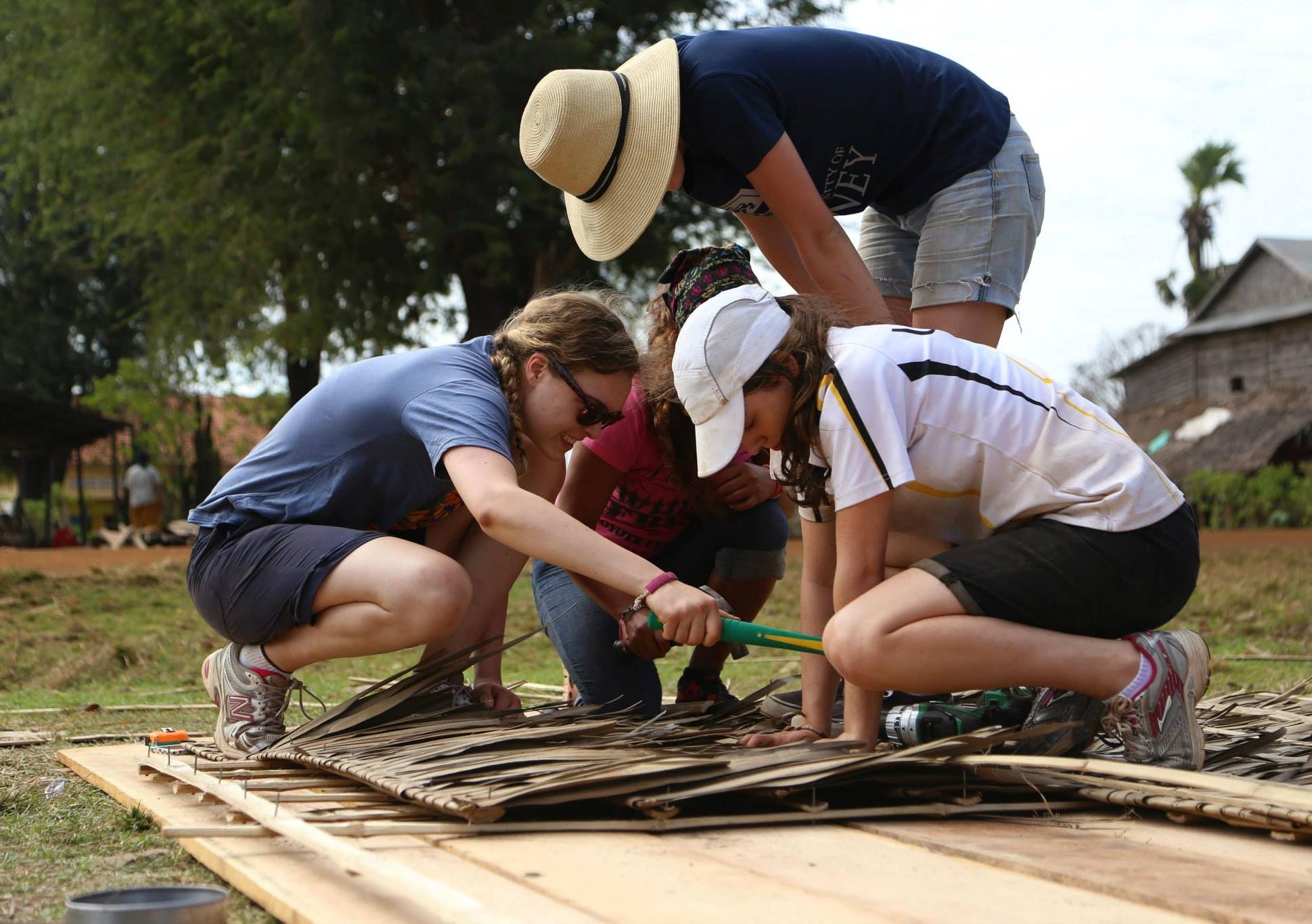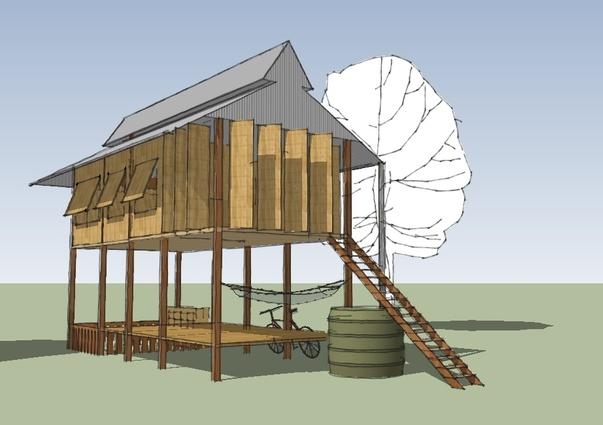Developing skills for a sustainable future
Sustainable energy students are seeing their housing and energy projects brought to life in Cambodia as part of a re-imagined hands-on course within UNSW's Faculty of Engineering.
Sustainable energy students are seeing their housing and energy projects brought to life in Cambodia as part of a re-imagined hands-on course within UNSW's Faculty of Engineering.

Sustainable energy students are seeing their housing and energy projects brought to life in Cambodia as part of a re-imagined hands-on learning course within UNSW's Faculty of Engineering.
The course -- Sustainable Energy for Developing Countries -- explores the design and implementation of housing and sustainable energy systems, with students designing projects for a specific community.
“The students take a holistic approach to understanding community needs and housing requirements, including looking at available resources, appropriate technology and indigenous techniques and engaging in dialogue with the community,” says the developer of the course, Dr Anna Bruce.
The course was redesigned last year to include the opportunity for students to work with industry partners on projects and to have them implemented in Cambodia.
Undergraduate and postgraduate students from Architecture, Development Studies and Engineering worked in groups to develop housing and energy proposals for the rural village of Chaom Trach, situated between Siem Reap and Phnom Penh.
Emma Hollo, a 24-year-old a Photovoltaic Engineering / Commerce student, took part in the course and then travelled to Cambodia in January this year to help bring the project to fruition. The trip was organised and run by Troy Roberts from RAWImpact, an NGO working in Cambodia on community programs.
“It was really refreshing and motivating to be working on a real project that could directly contribute to the development of a community,” Emma says.
UNSW students, architects, engineers and others build a sustainable house in Chaom Trach, Cambodia.
During the course, students had assistance from professional architects and engineers who helped with their housing designs. The industry collaboration was facilitated by engineering consultancy Cundall and led by Alistair Coulstock. Construction manufacturer Kingspan was the major sponsor for the project.
“The involvement with industry consultants who provided advice and feedback throughout the semester was quite exciting and it really added a lot of practical knowledge and design process insights,” Emma says.
While not all the students took part in the self-funded trip to Cambodia, for those who did it was a life-changing experience.
“The house construction was an awesome building experience. I worked on making the walls of the house, thatched from bamboo and palm fronds. The hand-over ceremony was an emotional and humbling time for us and for the families who were stunned by their new, improved houses,” Emma says.
“The trip has inspired me on a new career and life path. I would like to work for an NGO or in renewable energy projects in developing countries. Next year I plan to travel through South East Asia and volunteer and it would be great to gain work experience in engineering along the way,” she says.
The Sustainable Energy for Developing Countries course will be offered again in Semester 2, 2014 with the opportunity for students and others to travel to Cambodia in January 2015. Students will be designing and building a multi-purpose community hub in Ko Ki Village which lies six hours North East of Phnom Penh in Kratie Province. More information about the trip is available on the RAWImpact website.
Media contact: Leilah Schubert, UNSW Media Office, 9385 8107

